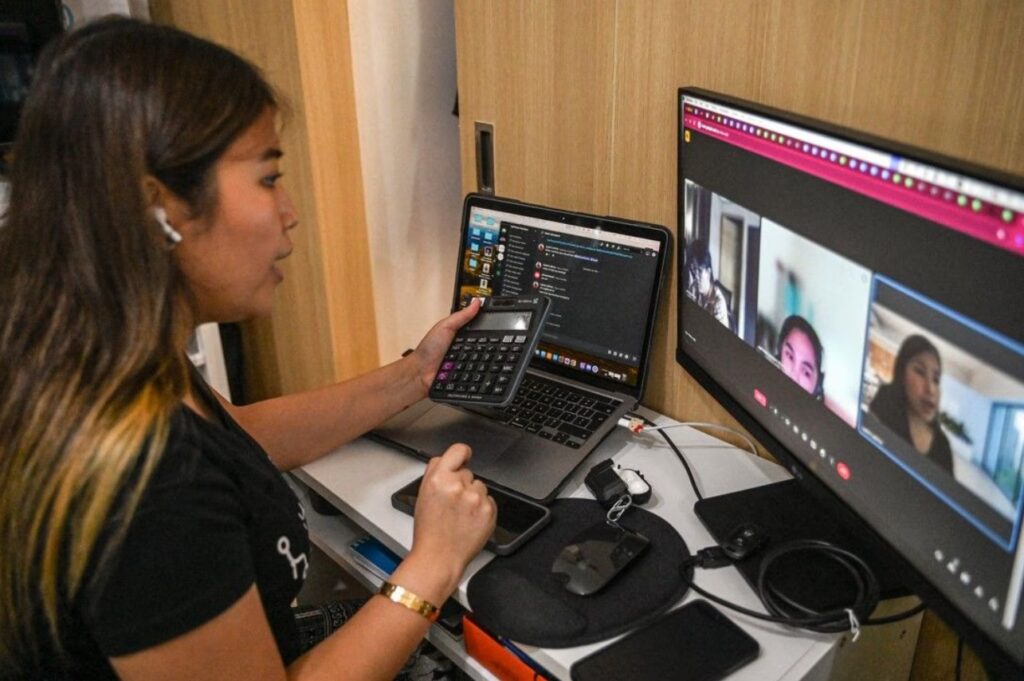In an increasingly globalized economy, US and UK companies are hiring in the Philippines strategically to access a talented, cost-effective workforce skilled in areas like business process outsourcing (BPO) and IT services. The Philippines boasts a young, English-speaking population with a strong affinity for Western business practices, making it an attractive destination for outsourcing and offshoring operations. However, navigating employment laws in the Philippines, labor laws in the Philippines, and the overall hiring process in the Philippines requires careful consideration to ensure compliance and success. This article explores essential aspects foreign companies must understand, from legal frameworks to cultural nuances, while highlighting how partners like Out Task, a trusted provider of HR outsourcing in the Philippines and employer of record in the Philippines services, can simplify these complexities.
Understanding Employment Laws in the Philippines
Employment laws in the Philippines form a robust framework designed to protect workers while facilitating business growth, but they present unique challenges for foreign entities unfamiliar with local regulations. Governed primarily by the Labor Code of the Philippines, these laws emphasize security of tenure, fair wages, and mandatory benefits, differing significantly from more flexible systems in the US and UK. Foreign companies must comply with provisions prohibiting direct hiring of Filipino workers for overseas employment unless authorized, though local hiring options exist via entity establishment or partnerships.
- Core Labor Code Provisions: The Labor Code outlines worker classifications, including regular, probationary, and contractual employees, each with specific rights. For instance, regular employees enjoy tenure security, meaning they cannot be dismissed without cause, such as serious misconduct or redundancy. This contrasts with at-will employment in the US, requiring foreign employers to document performance issues meticulously to avoid legal disputes. Additionally, the code mandates written employment contracts detailing terms like job description, salary, and duration, which must be filed with relevant authorities for validation.
- Restrictions on Foreign Employers: Foreign companies cannot hire directly without a local presence; they must either register a subsidiary or use an employer of record service. If hiring expatriates, this includes obtaining permits from the Department of Labor and Employment (DOLE) for alien employment, though the focus here is on local talent. Non-compliance can lead to fines or operational halts, underscoring the need for expert guidance.
- Worker Protections and Entitlements: Laws enforce minimum standards for working hours (eight per day, with overtime pay at 125% of the regular rate), rest days, and holidays. Employees are entitled to service incentive leave after one year, equivalent to five days with pay. Social security contributions are mandatory, split between employer and employee, covering pensions and health insurance. These protections foster a stable workforce but add administrative layers for foreign firms.
- Evolving Regulations: Recent updates, such as DOLE’s rules on foreign nationals’ employment, require newspaper job vacancy publications to prioritize local hires. This ensures Filipinos are given opportunities first, aligning with national employment goals. Staying abreast of changes like wage adjustments or benefit enhancements is essential for US and UK companies to avoid penalties.
Discussing further, these laws reflect the Philippines’ commitment to equitable labor practices, influenced by historical contexts like colonial legacies and economic reforms. For example, the ban on direct overseas hiring aims to prevent exploitation by channeling recruitment through licensed agencies. In practice, foreign companies must navigate bureaucratic hurdles, such as securing Alien Employment Permits (AEP) for non-Filipino staff, which involves proving that no local candidate is available. Labor disputes are resolved through the National Labor Relations Commission (NLRC), where cases can drag on, emphasizing preventive compliance. Outsourcing partners like Out Task handle these intricacies, ensuring seamless adherence while allowing companies to focus on core operations. Overall, while protective, these laws demand thorough due diligence, making professional assistance invaluable for smooth entry into the Philippine market.
Requirements for Hiring Employees in the Philippines
Meeting the hiring requirements in the Philippines is essential for foreign companies to operate legally and efficiently. However, the process involves multiple layers of documentation and approvals that can overwhelm unprepared businesses. These prerequisites ensure compliance with local standards, protecting employers and employees, yet they highlight the necessity of structured approaches like recruitment agency Philippines services.
- Establishing Legal Presence: Foreign entities must register with the Securities and Exchange Commission (SEC) to form a subsidiary or representative office, which includes submitting articles of incorporation, financial statements, and proof of capital investment. This can take months and requires local directors, adding complexity for US and UK firms without regional expertise.
- Obtaining Necessary Permits: Companies need a Tax Identification Number (TIN) from the Bureau of Internal Revenue (BIR) and registration with social security agencies like the Social Security System (SSS), PhilHealth, and Pag-IBIG Fund. An AEP from DOLE is mandatory for hiring foreigners, and it involves affidavits and labor market tests to confirm that no suitable local applicants are available.
- Drafting Employment Contracts: Contracts must be in writing and specify terms such as probationary periods (up to six months), compensation above the minimum wage in the Philippines, and confidentiality clauses. They should also comply with labor laws in the Philippines, including provisions for termination and dispute resolution, and be notarized for enforceability.
- Compliance with Anti-Discrimination Rules: Hiring must adhere to equal opportunity principles, prohibiting bias based on age, gender, or religion. Background checks are allowed but must respect data privacy laws under the Data Privacy Act, requiring employee consent.
Further elaboration reveals that these requirements extend to talent acquisition Philippines strategies, where companies must advertise positions locally before considering contractors or remote hires. For instance, staff leasing in the Philippines often involves partnering with licensed agencies to meet DOLE’s accreditation standards. Minimum capital for foreign-owned entities varies by industry, with BPO hiring in the Philippines typically requiring lower thresholds. Non-compliance risks include hefty fines or business suspension, as seen in cases where companies overlooked SSS registrations. Trusted providers like Out Task streamline these by acting as the employer of record, handling registrations, and ensuring all documents align with the foreign companies’ hiring in the Philippines guidelines. This mitigates risks and accelerates onboarding, allowing businesses to tap into the Philippines’ skilled pool without administrative burdens. In essence, while rigorous, these requirements safeguard investments when managed professionally.
The Hiring Process in the Philippines
The hiring process in the Philippines is multifaceted and demands meticulous planning and execution. It often proves too much work for individuals or small teams without dedicated HR support. From sourcing candidates to final onboarding, each step involves regulatory oversight and cultural considerations, making it laborious and time-intensive for foreign companies.
- Sourcing and Recruitment: Begin by posting job vacancies on platforms like JobStreet or through recruitment agency Philippines partners, but DOLE requires newspaper publications for specific roles to prioritize locals. Screening resumes involves verifying qualifications, which can be exhaustive given the high volume of applications in competitive fields like BPO hiring in the Philippines.
- Interviews and Assessments: Conduct multiple rounds, including skills tests and behavioral interviews, while ensuring compliance with labor laws on fair practices. Virtual tools are standard for remote hiring in the Philippines. However, confirming candidate reliability adds layers, such as reference checks that may span weeks due to time zone differences between US and UK offices.
- Offer and Contract Negotiation: Extend offers with competitive packages, including employee benefits like 13th-month pay. Negotiations must align with the minimum wage in the Philippines (around 600 PHP daily in non-agriculture sectors) and include clauses on probation. Drafting compliant contracts requires legal review, which is prone to delays if not handled expertly.
- Onboarding and Compliance Filing: Once accepted, onboard with orientations on work culture in the Philippines, then file documents with BIR, SSS, and others. This includes payroll setup in the Philippines, withholding taxes, and benefit enrollments—tasks that accumulate paperwork and potential errors.
Delving deeper, the process’s complexity stems from intertwined bureaucratic elements, such as obtaining clearances for background verification under strict privacy laws. For foreign companies, missteps like improper classification of workers as contractors versus employees can trigger audits or lawsuits. The timeline often stretches to 2-3 months, involving coordination across agencies, which is daunting without local knowledge. This underscores why many outsource HR in the Philippines to delegate these burdens. As a reliable partner, Out Task manages the entire sequence, from talent scouting to compliance, alleviating the overwhelming workload. Ultimately, while rewarding, the process’s intricacies demand professional intervention to avoid costly pitfalls and ensure efficient team building.
Cost of Hiring and Payroll Considerations in the Philippines
Evaluating the cost of hiring in the Philippines reveals significant savings compared to the US and UK markets. However, the cost encompasses more than salaries, including mandatory contributions and taxes that require precise calculation to maintain budgets. This aspect is critical for offshoring Philippines strategies, where low operational costs drive decisions.
- Salary and Minimum Wage: Base pay starts at the minimum wage in the Philippines, which varies by region—e.g., 645 PHP daily in Metro Manila for non-agriculture. Average salaries for BPO roles range from 20,000-50,000 PHP monthly, far below Western equivalents, but they must include 13th-month pay, equivalent to one month’s salary.
- Employer Contributions: Employers bear about 9.5% for SSS (pension and loans), 2.5% for PhilHealth (health insurance), and 2% for Pag-IBIG (housing fund), capped at specific amounts. These total around 14% of payroll, plus potential overtime and holiday premiums at 200% for special days.
- Taxes and Deductions: Payroll in the Philippines involves withholding income tax (0-35% progressive rates) and value-added tax implications for services. Foreign companies must register for BIR withholding and remit monthly, which adds administrative costs if not outsourced.
- Additional Expenses: Factor in recruitment fees, training, and equipment for remote setups. Hiring contractors in the Philippines may reduce benefits obligations, but careful classification is required to avoid reclassification risks under labor laws.
Expanding on this, costs can escalate with non-compliance penalties, such as fines for late SSS payments. For example, a mid-level IT specialist might cost 30,000 PHP base, but with contributions and benefits, the total employer outlay nears 40,000 PHP. Economic factors like inflation influence annual wage boards’ adjustments, necessitating ongoing monitoring. Using an employer of record in the Philippines, like Out Task, optimizes these by handling payroll accurately, ensuring timely and compliant deductions. This not only controls expenses but also provides transparency through detailed reporting. In summary, while affordable, managing these costs demands expertise to maximize value from Philippine talent.
Navigating Challenges and Compliance in Hiring in the Philippines
Navigating challenges and compliance in hiring in the Philippines is fraught with hurdles that can deter foreign companies, from bureaucratic red tape to cultural mismatches. This endeavor is particularly complicated without specialized assistance. These obstacles underscore the importance of strategic partnerships to mitigate risks effectively.
- Regulatory Compliance Issues: Strict enforcement of employment laws in the Philippines means foreign firms risk violations in areas like termination procedures or benefit provisions, leading to NLRC disputes. For instance, improper documentation can result in backpay awards, amplifying financial liabilities.
- Cultural and Operational Differences: Work culture in the Philippines emphasizes hierarchy and family values, which may clash with flat US/UK structures, causing communication gaps. Time zone disparities (12-13 hours from the US East Coast) complicate real-time collaboration, while remote hiring in the Philippines adds cybersecurity concerns.
- Talent Retention and Market Competition: High turnover in BPO sectors due to better offers elsewhere challenges sustainability—compliance with data privacy and anti-corruption laws further layers complexity, requiring ongoing training and audits.
- Economic and Logistical Factors: Currency fluctuations affect payroll in the Philippines, and infrastructure variances in rural areas impact remote work reliability. Foreign companies hiring in the Philippines often face delays in permit approvals, extending timelines.
It is critical to seek Out Task’s help because the complicated process involves intricate legal nuances and administrative demands that can overwhelm internal teams. As a trusted provider, Out Task offers comprehensive compliance hiring solutions in the Philippines, ensuring all aspects—from entity setup to dispute resolution—are handled expertly. This expertise prevents costly errors, allowing businesses to focus on growth. Professional support like Out Task’s is indispensable for seamless integration in a landscape where missteps can lead to operational shutdowns.
Work Culture and Employee Benefits in the Philippines
The work culture in the Philippines blends strong work ethics with a relational approach, offering US and UK companies a dedicated workforce, but understanding its nuances is key to fostering productive teams. Employee benefits in the Philippines further enhance appeal, mandated by law to support worker well-being.
- Key Cultural Traits: Filipinos exhibit resilience and positivity, often going beyond duties in BPO hiring in the Philippines. Respect for authority (“po” in communications) and group harmony influence interactions, requiring sensitive management to avoid misunderstandings.
- Mandatory Benefits Overview: Laws require 13th-month pay, five days of service incentive leave, and maternity/paternity leave (105/7 days respectively). Special leaves for solo parents and victims of violence add to the package, ensuring comprehensive support.
- Health and Social Security: PhilHealth covers medical needs, SSS provides sickness and retirement benefits, and Pag-IBIG aids housing. Employers must contribute by promoting loyalty, but accurate administration is necessary.
- Work-Life Balance Elements: Holidays (12 regular, eight special) and flexible hours in outsourcing sectors accommodate family priorities, a core cultural value. Team-building activities strengthen bonds, boosting morale.
Further discussion highlights how this culture drives success in offshoring to the Philippines, with English proficiency facilitating global roles. However, adapting to indirect communication styles prevents conflicts. Out Task, as a premier provider, integrates these elements into HR outsourcing in the Philippines, customizing benefits to attract top talent. This holistic approach ensures compliance while enhancing employee satisfaction, which is vital for long-term retention in competitive markets.
Wrapping Up
Hiring in the Philippines offers US and UK companies unparalleled opportunities for cost savings and talent access. However, success hinges on mastering employment laws, requirements, processes, costs, challenges, and cultural dynamics. By addressing these comprehensively, businesses can build resilient teams that drive innovation and efficiency. Partners like Out Task exemplify how expert guidance transforms potential pitfalls into strategic advantages, ensuring sustainable growth in this vibrant market.
Is Assistance Available?
Yes, Out Task can help streamline your hiring journey with tailored solutions that effortlessly navigate the complexities. Contact us today to schedule an initial consultation with one of our experts.
- Contact Us Here
- Fill Out the Form Below
- Send an email to: info@outtask.ph



